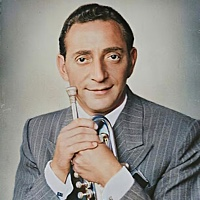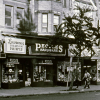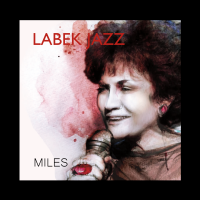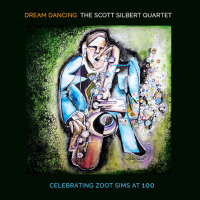History of Jazz
Vince Guaraldi’s Christmas Sauce: Adding Spice to Charlie Brown Vanilla

by Arthur R George
It's not simply that pianist Vince Guaraldi slipped jazz past the unsuspecting in composing A Charlie Brown Christmas, the evergreen “Peanuts" animation and soundtrack that has become inescapably part of the holiday. First broadcast in 1965, going on to six decades ago, A Charlie Brown Christmas is a tradition unto itself. It returns to television through PBS and PBS Kids on the evening of Sunday, December 19. Some who can't wait, or want to watch and listen again and again, ...
Continue ReadingTantilla's Majestic Grip on Richmond's Scene

by Troy Hoffman
The “South's most beautiful ballroom," Tantilla Gardens, at 3817 W. Broad Street, in Richmond, Virginia, was an acoustically treated structure built by the Byrd Theatre Group in 1933. The building stretched a block long, featuring nightly dancing, along with the Nation's greatest dance orchestras. This all took place on the second floor, atop Tiny Town Bowling Alleys, the “South's most modern bowling plant." Tantilla Gardens averaged at $1.50 entry fee per night ($30.00 in today's money) and had a capacity ...
Continue ReadingMusic as Survival: Trumpeter Louis Bannet's Chilling Ultimatum at Auschwitz

by Joe Alterman
Before the war, violinist and trumpeter Louis Bannet was a celebrated jazz musician in Holland, often called “the Dutch Louis Armstrong." Once, before the war, he heard a knock on his dressing room door. “So you're the Dutch Louis Armstrong?" a deep, raspy voice said. “It's nice to meet you. I'm the American one." And just like that, he and Louis Armstrong jammed the night away. Then everything changed. Arrested and sent to Auschwitz, Louis Bannet faced a ...
Continue ReadingJazz in Nazi Germany: The Music That Wouldn’t Die

by Joe Alterman
This article was originally published on Moment Magazine. Music, at its core, is freedom. It cannot be caged by ideology or controlled by propaganda. The Nazis understood that, which is why they tried so desperately to suppress it, to twist it, to erase it. And yet, even in those darkest of times, music found a way to persist--not as a passive relic, but as an act of defiance and expression, a refusal to be silenced. And ...
Continue ReadingShowboat's-A-Swingin'

by Troy Hoffman
Washington DC's Showboat Lounge hosted a vast array of ground-breaking talent from the '40s, into the late '70s. The establishment was located at the corner of Columbia Road NW and 18th Street, and owned by Pete Lambros, who maintained an all-jazz policy for many years. The DC Showboat built up the reputation as a mad-house type of scene, especially on the nights that Dizzy Gillespie would play. Other acts that graced the Showboat include Bill Evans, Shirley Horn, Earl Hines, ...
Continue ReadingGravity and Resurgence: The Many Dimensions of Dexter Gordon

by Arthur R George
Long Tall Dexter; swinger, bebopper, saxophone balladeer; acting the dissipated genius expatriate who was not unlike himself in the movie Round Midnight; his dressed-up persona “Society Red;" the laconic elder statesman of his later years. Dexter Gordon is all those things, but more than a kaleidoscope of caricatures. Those who trace their lineages through Sonny Rollins or John Coltrane and beyond contain within them the earlier influence of Dexter Gordon. Joshua Redman, among contemporary players, attributes his robust ...
Continue ReadingShut Up, He Explained: On Talking Heads In Jazz Flicks

by Con Chapman
As an avid watcher of jazz documentaries, my thoughts on the genre may be summed up by the words of two of my favorite writers, Raymond Carver and Ring Lardner. Carver named his first short story collection “Will You Please Be Quiet, Please?--the words are spoken by a character named Ralph to his wife Marian, who has confessed to cheating on him in the story of the same name. From Jazz by Ken Burns and Geoffrey Ward to ...
Continue ReadingWhich Came First—Jazz or Baseball?

by Con Chapman
Baseball and jazz rank high among the objects of my affection, and have several things in common: Both are distinctively American products with foreign roots; both are inexhaustible sources of enjoyment, at least to me; and both are popular in the best sense of that word, with broad appeal across ages, races and classes. That doesn't mean they're related, although a school of thought has developed that the word “jazz" originated as a baseball term. The genesis of ...
Continue ReadingWhere Clifford Brown Learned to Play: Love In A Wilmington Neighborhood

by Arthur R George
Part 1 | Part 2 Robert “Boysie" Lowery was trumpeter Clifford Brown's first music instructor in the early 1940s, and mentored decades of young musicians thereafter in Wilmington, Delaware. He taught as a sideline to club work, a resource for his community but caring not so much about being paid for his lessons. That generosity continues with the eighth year of a tuition-free Boysie Lowery Living Jazz Residency, in conjunction with the Clifford Brown Jazz Festival, which runs ...
Continue ReadingJazz at the Blackhawk: Reflections of Cal Tjader’s First Live Album

by Geo Thelen
The historic Blackhawk jazz club (1949-1963) was formerly located at 200 Hyde Street on the northeast corner of Turk Street in the heart of San Francisco's tenderloin district. The smoky neighborhood nightclub launched the career of Johnny Mathis, helped Dave Brubeck find an audience, and gave numerous national artists such as Miles Davis and Thelonious Monk a musically intimate space to experiment and record quality live albums. Arguably though, Bay Area vibraphonist Cal Tjader (pronounced Jay-der) was the most synonymous ...
Continue Reading












